Tags
Corcovado National Park, Costa Rica, Ficus trees, Nature, photography, rainforest, Sirena Ranger Station, spider monkeys, travel, wildlife
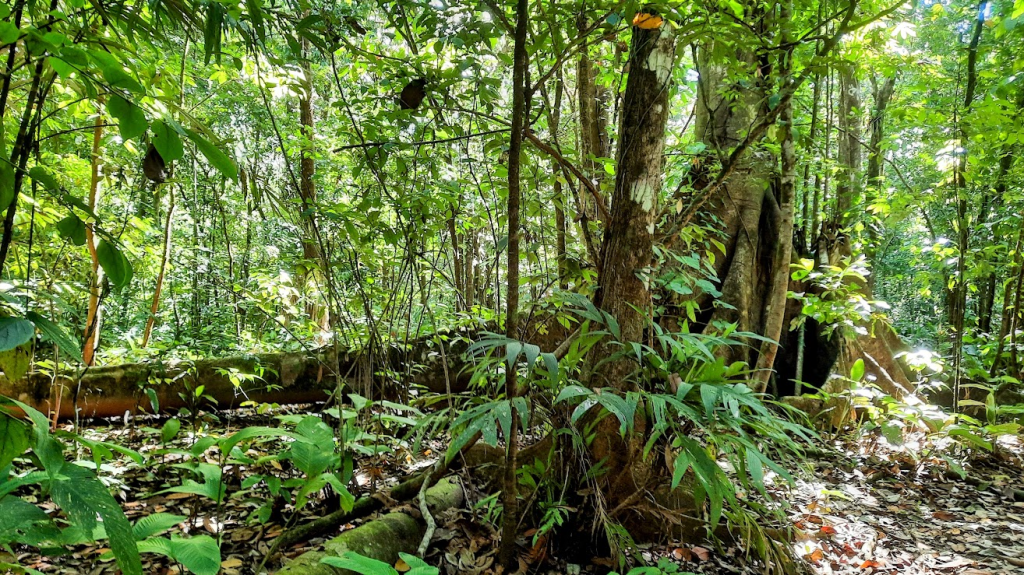
The presence of the world is precisely the presence of its flesh to my flesh.
–Maurice Merleau-Ponty, from The Visible and Invisible
This is precisely how I felt hiking through the rainforests of the Corcovado National Park in Costa Rica a few weeks ago. “The Lungs of the World” is what they call these forests, so vital to human life.
In one way I was just an intruder, a foreigner, a tourist, led by the gentle hand of our guide into an exotic world outside myself or anything I’d experienced before. In another way, it was like entering a vast green breathing world that embraced and pervaded me even as I embraced and pervaded it with my presence.


I was like a single thread weaving its way through this vast tapestry of trees, taking it in as it took me in. I walked beneath a broad canopy of leaves, trampling through layers of dank, damp leaves, and stepping carefully between gnarled roots that snaked up the trunks of trees. Weaving my way through this woven world and being enveloped by it at the same time: My lungs breathing in what its lungs released. My skin absorbing its moist breath. My scent mingling with its heady aroma: a wild herbal tea with hints of mint and moldy leaves, punctuated by sharp whiffs of piss from animals marking territory.
And all that awash in the sounds of the sea lapping its shores, and the ripples of rivers and streams that ran like veins through it, reflecting back images of itself.
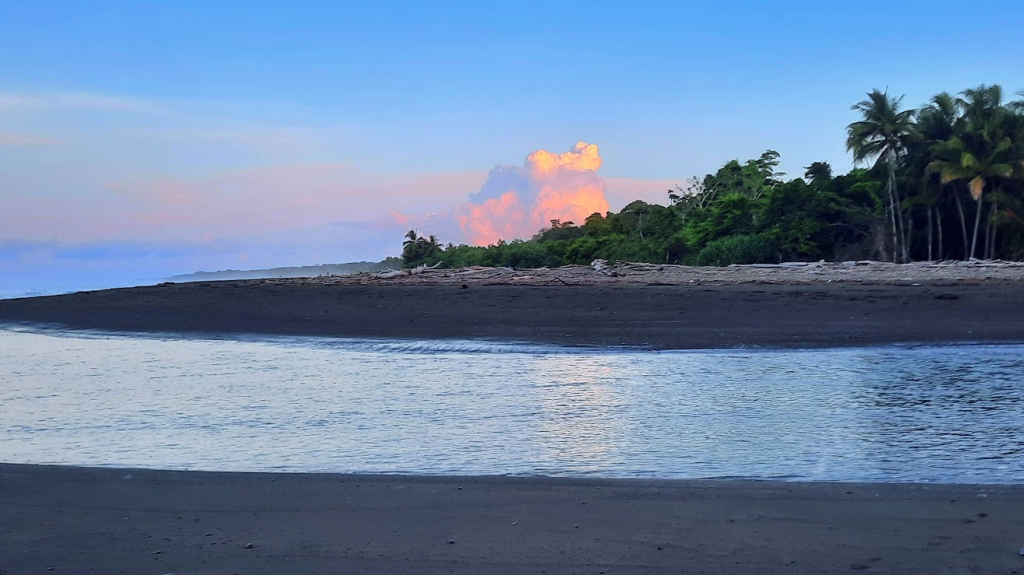


I was entranced by the Ficus trees, these huge abstract sculptures, so elegantly shaped with their deeply fissured trunks and roots spreading like giant octopus arms. I loved to run my fingers over its rough texture splashed with paint. One giant Ficus root, like an elephant’s back, rose twice as high as me, so tall I could not see its top.



Often along the trail we would still, listening intently while gazing upward and around us for animal sightings. And sometimes we found them: Two ibis with their long thin beaks wading in a stream.


A toucan half-hidden among the palm fronds.

The slick backs of tapirs napping in shallow streams.

A thin green snake swallowing a fat toad.


And then there were the spider monkeys, so many swinging by their tails through the trees or quietly watching us with their big yellow-ringed eyes. As one such mama did so, her baby gleefully romped across her body as if it was a jungle-gym, recalling similar moments with my own youngsters so long ago, feeling that shared weight of motherhood. (I have the video but was unable to embed it here.)


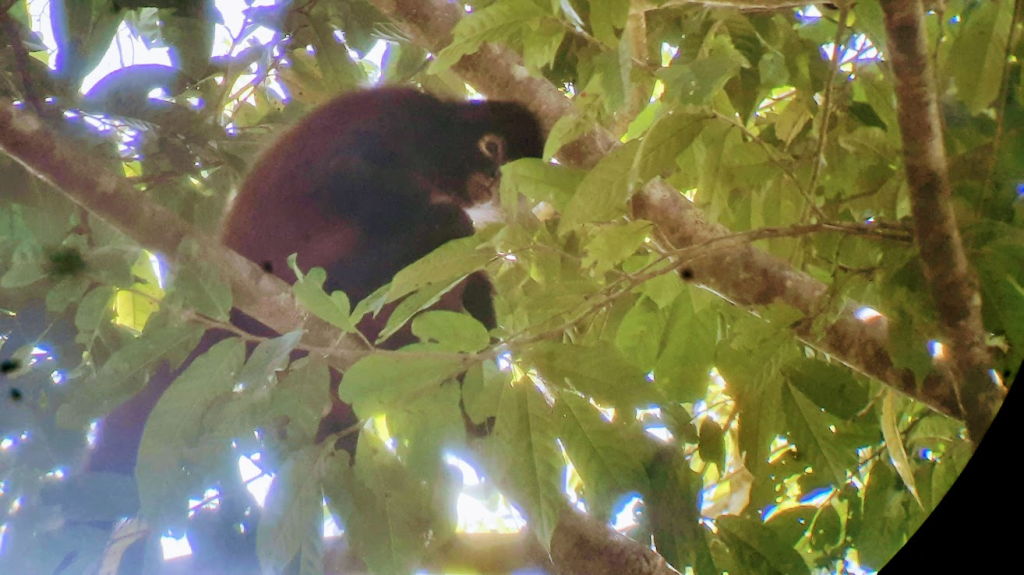
I remember all this now as if a distant dream, the flesh of the rainforest impressing itself upon my flesh, touching me as I touched it. I remember too our indigenous guide Bolo, holding my hand as he helped me over some of the steeper trails and across rocky streams, pointing out different sights and setting up his telescope so I could see them better, cupping his mouth to imitate the sounds of birds and howler monkeys.
I remember how the heat and humidity weighed me down by the end of our hikes, how eager I was to reach the Sirena Ranger Station’s wide veranda, where we could sit and rest between hikes, and how the cooks piled our lunch plates so high with beans and rice and pork and plantains, I thought I’d never be able to eat it all. But I did.
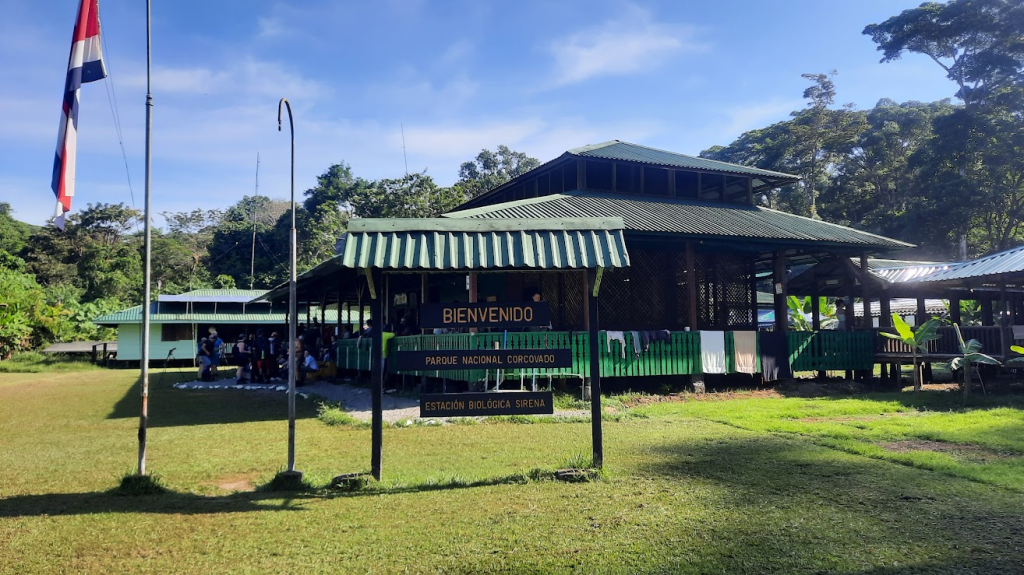

I remember the rows of bunkbeds and their white mosquito nettings, so neat and tidy, and how I lay there in the dark, breathless nights listening to the sounds of the jungle.
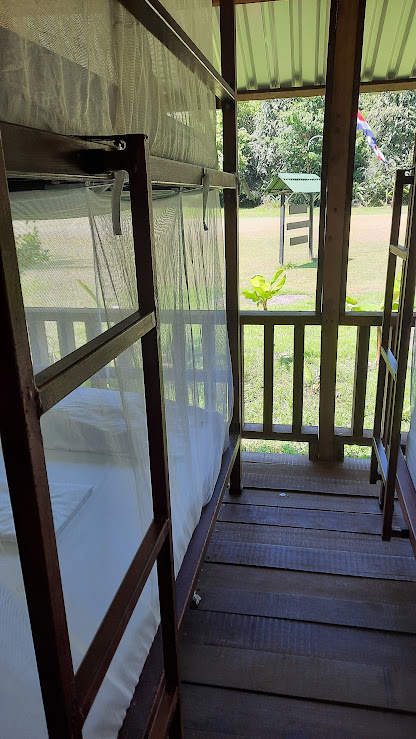
Even as I left the rainforest for the sea and boat ride back to Drakes Bay, I still felt embedded in the world around me, still had the sense that I was its perceiving self, the part of the world that reflected back on itself.
This is true, even now as I recollect in tranquility those raw experiences, processing them and shaping them into images, into a language others will understand and draw upon to recreate their own images of similar experiences. Even now it all seems so rich and alive and vital, this shared experience of what it means to be human in a more-than-human world.

Wow! Amazing photographs. What an experience.
Thank you! It was amazing. I took so many photos, but these were the ones that seemed to best capture the experience.
Welcome!
Fabulous photos!
Thank you! I’m glad you enjoyed.
What a beautiful experience you had Deborah! Your evocative words captivated and engulfed me much as the forest did with you.
What a beautiful trip and experience Deborah. Your evocative words engulfed me much as the forest did you.
Thank you, Brad. That means a lot!
The diversity is amazing and how small you must of felt standing in front of those massive tree trunks. There is something magical in reconnecting with nature and healing. I’m glad you had such an inspiring trip.
It was amazing and magical! Thank you for coming here and sharing your thoughts. It’s what makes blogging so magical too.
“I was like a single thread weaving its way through this vast tapestry of trees, ”
Love that feeling-imagery. An apt descriptor of our life path in general, too.
And those Ficus tree trunks – wow! I will never look upon the humble ficus tree houseplant in the same way, ever again!
I know! I have a couple of the houseplant variety of ficus in my home too. They are beautiful, but nothing like their giant cousins.
I wonder if those ‘giant cousins’ could be considered the ‘Redwoods of Costa Rica?’
😉
I like that!
It’s clear you had a great time. On the whole it’s so different from what we experience in the United States, where the closest thing in some ways might be parts of Hawaii, and in others southern Florida.
The Spanish/Portuguese word corcovado means ‘hunchback’. It’s easy to understand how the Corcovado in Rio de Janeiro got its name, but none of the searching I did turned up an explanation for why the national park in Costa Rica came to be called that.
That’s interesting. I have no idea why the park would be named that either. Strange.